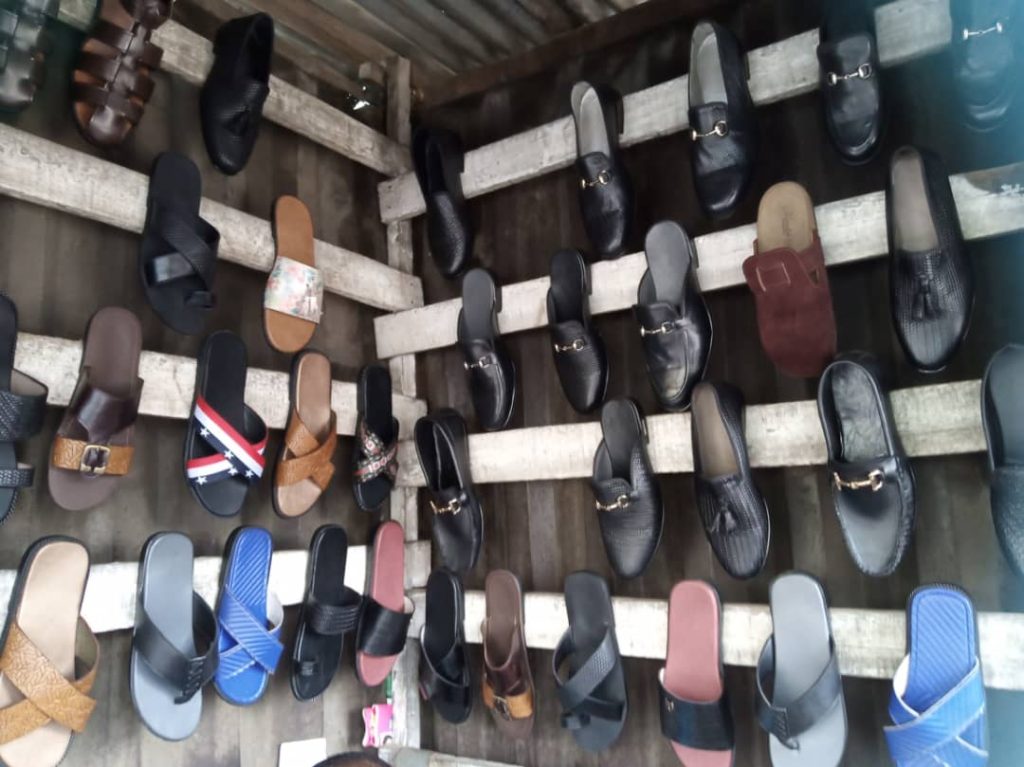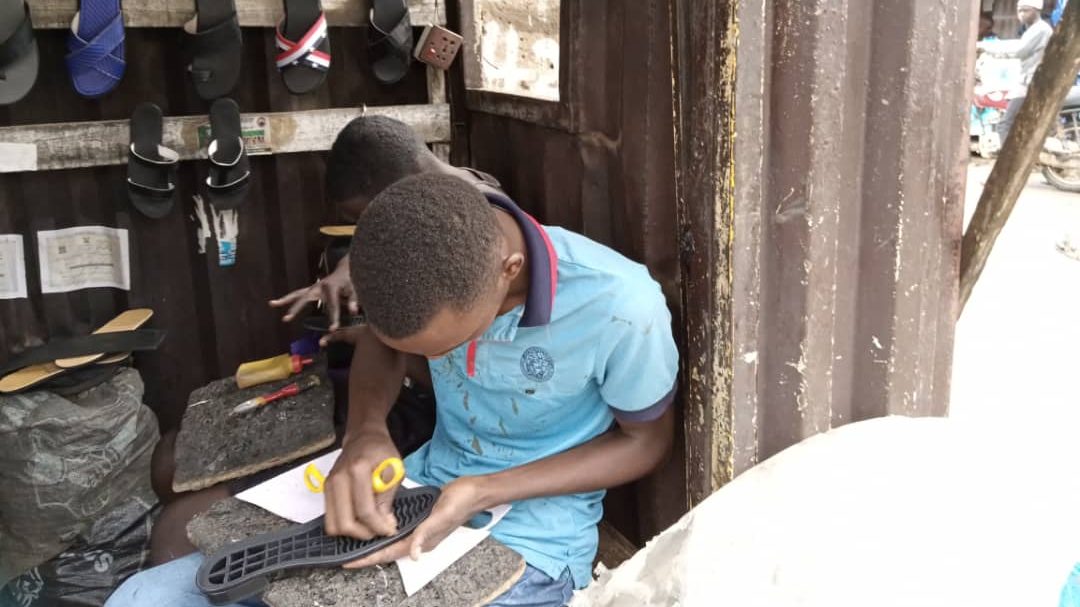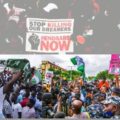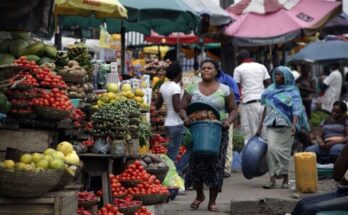By Fakomi Olajumoke and Linus Akomolafe
One of the challenges faced by startups still remains lack of funds as many ideas are aborted due to cashtrap. Many Micro Small and Medium Enterprises (MSMEs) in Lagos, are sited in unauthorized areas and are often affected by government’s clamp downs.
Gbenga Akinya is an enterprising cobbler, who surmounted all odds to build his shop from sands dredged from drainages in Ogba after he lost his shop in Ikeja in 2013 during the tenure of Babatunde Fashola, former Governor of Lagos State.
Mr. Gbenga, a father of three sighed, leaning back against the container shop of not more than 4ft wide, where he displayed his hand-made shoes and slippers, as he recounted his experience to IkejaBird.
“Before I built this place four years ago, I trekked for many weeks from Agege down here to Ogba just to save up and see that this place is okay.”
The distance from Agege to Ogba is about 14km and takes about 1hr 30mins to trek on foot.

In a small shop on the streets of Folawewo, Ogba, Ikeja, Gbenga, explained that his 10 years experience as a cobbler began from a small town in Ondo State. He learnt how to make shoes there after he graduated from secondary school before relocating to Lagos. However, things didn’t go as planned..
“I started this cobbler business from Ikeja. I left there during Fashola’s time when he drove us away and I relocated to Ogba four years ago.”
“When I got to this place, there was no money to start. I began business in Ogba here with just four slippers and no capital,” he said.
“I will trek from Agege to Ogba here because I want to work here. The sand I used to make the floor was from the gutter. That is why the business is not that big up till now and it’s not that I don’t know the job.”
There has been no electricity in Mr. Gbenga’s shop within the last 6 months. “We don’t have light here and the charges they bring is too much. Sometimes I pay N7, 000 for electricity bills in a month and the light is not stable.”
He added that he doesn’t rely on power which made him purchase a generator which costs him N15, 000 to fuel every month.
In terms of exploring the social media space to boost sales, he said he is not prepared to take his business on such platforms yet as he is mastering his craft and doesn’t want to disappoint his customers.
Perhaps Mr Gbenga, like many small business owners, is reluctant to use social media because he may not really understand how it works or what it can do for his business. Although he readily takes orders from people he hasn’t met, he is reluctant to put his business on social media .

“I take orders from people I haven’t seen. What I do is ask for their sizes and samples of what they want,” he said.
The cost of the shoes he makes range from N10,000 to N12,000 while the slippers cost from N4,000 upward.
The cobbler already has two apprentices, and one of them, Taiwo Amos is seeking admission into the University of Lagos, and also aspiring to be a medical doctor.
He shared his experience on the job, “There was this time I made a mistake in cutting a slippers. I cut two right legs instead of left and right leg, and we didn’t have other leather materials to replace the one I had damaged. I spoiled everything. It was really a painful experience but my boss is not the kind of boss that beats. He just corrects.”
Taiwo said he is inspired to learn cobbling because there is someone making the vice president’s shoes and he hopes to be that person in future.
He advised that “Students should learn a craft while waiting for admission because no knowledge is a waste.”
Mr Gbenga believes that handwork is the best and even a salary job cannot be like entrepreneurship. He said, “Even if you go to school, you have to learn something.”








